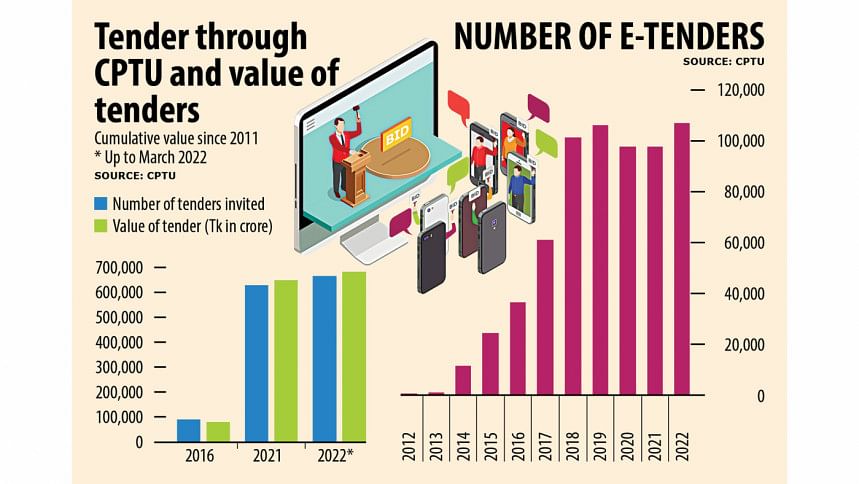Govt to form authority on public procurement

The government has prepared a draft law for ensuring transparency and accountability in public sector purchases while also improving efficiency in the sector.
As per the draft law, which will soon be placed at a cabinet meeting, the Bangladesh Public Procurement Authority (BPPA) will be formed to regulate public purchases.
A top official of the planning ministry confirmed last week that the draft law has already been sent to the Cabinet Division.
The government decided to form the BPPA in line with the conditions set by various multilateral lenders, including the World Bank.
Earlier, the World Bank called for full implementation of the e-Government Procurement (e-GP) system, which would bring down the average procurement lead time (from invitation to contract signing) to 50 days from 70 days at present.
But for that to happen, the Bangladesh Public Procurement Authority Act must be enacted, the global lender said in its conditions for upcoming budgetary support.
Bangladesh spends more than $25 billion annually on public procurement, around 65 per cent of which is done through the e-GP system, according to the planning ministry.
The upcoming authority's chairman of the board of directors would be the planning minister while its vice-chairman would be the secretary of the Implementation Monitoring and Evaluation Division (IMED).
The board would comprise representatives of the IMED, planning ministry, finance ministry, the ministry of law, justice and parliamentary affairs, and the chiefs of four procurement offices considering their higher purchase requirements and complex nature of the goods.
Two board members would be the chiefs of procurement offices that got the highest allotment in the development budget for the previous financial year. All the representatives would be at least joint secretary level officials.
From the private sector, two board members would be included considering their three-year experience in public procurement or extensive knowledge in purchase rules and regulations.
The chief executive officer of the BPPA will be a member of the board with additional secretary status.
The tenure of the board of directors will be a maximum of three-years and the government can increase or cut the size of the board when needed.
The board will form policy and a legal framework for purchase activities and regulations to run the BPPA properly.
The BPPA will have to make a yearly report on all purchase activities and submit it to the government with recommendations on how to improve efficiency in this regard, the draft law says.
The authority will also form, update and maintain a list of people who are banned from public procurement activities. The list will be available for reading among the mass people.
However, the BPPA's prime responsibility would be to run the e-GP system properly while preserving its related data.
The World Bank has been giving financial and technical support for the e-GP system since 2008.
In 2021, the agreed International Development Assistance of $40 million of the World Bank was intended to support the scaling up of e-GP coverage to 100 per cent.
e-GP usage has led to a roughly 7 per cent reduction in procurement costs compared to manual, paper-based procurement practices.
As such, estimated savings in FY21 reached $1.1 billion, as per World Bank data.
Besides, the procurement lead time for all tenders decreased from 100 days in FY17 to 57 days in FY21.
The Central Procurement Technical Unit (CPTU) of the planning ministry was mainly responsible for implementing the e-GP project.
However, the CPTU's capacity has been limited because of its legal structure, a lack of autonomy in decision making, and limited staffing.
So, assimilating the CPTU with the BPPA with enhanced authority and autonomy would help take care of the e-GP project.
Regarding challenges of the public procurement system, the World Bank said in its review that public purchase reforms are extremely complex due to the involvement of numerous stakeholders with diverse and sometimes conflicting interests.
The process in Bangladesh required not only technical, but also substantial political commitment and behavioural interventions, it added.


 For all latest news, follow The Daily Star's Google News channel.
For all latest news, follow The Daily Star's Google News channel. 



Comments